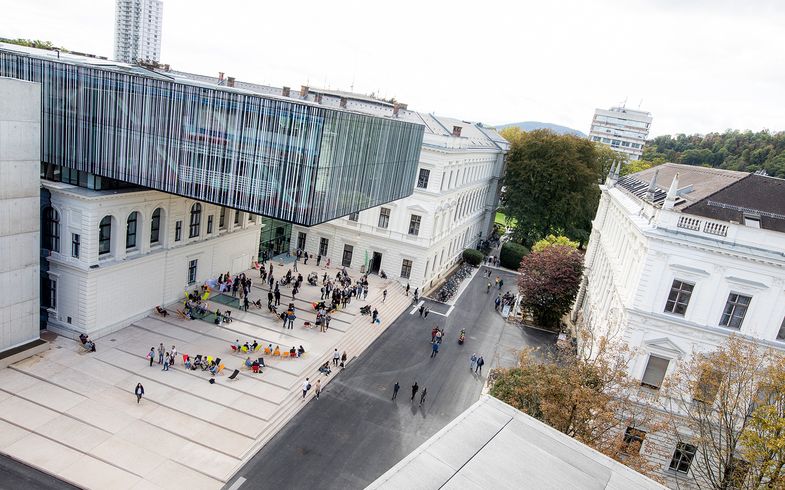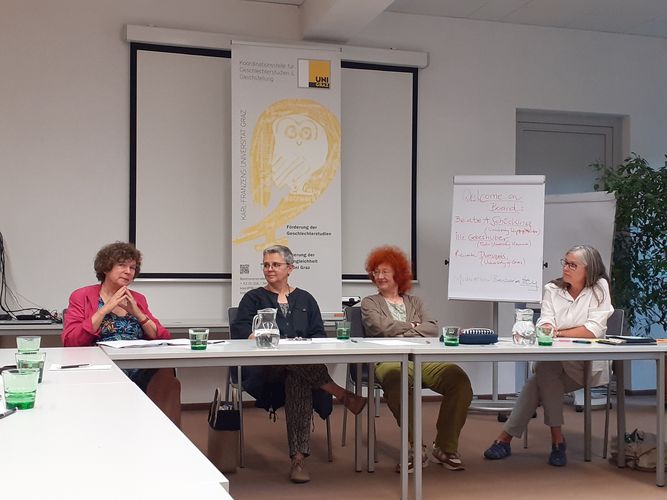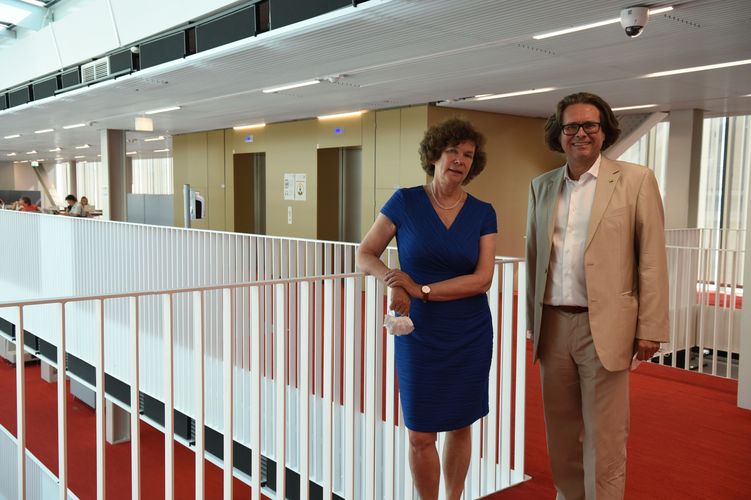The University of Graz in Styria and Leipzig University have been partners for more than 30 years, and cemented this cooperation in 2015 by agreeing on common strategic goals. In addition to a bilateral partnership, Graz and Leipzig are also connected through their membership in the Utrecht Network and the Arqus European University Alliance. “After a long break from travelling, I was all the more pleased to be invited by our close partners to participate as an expert in a panel discussion in Graz, and thus to visit the University of Graz again after many months,” said Rector Schücking.
The panel discussion on 14 July, on the topic of “Being a female scientist – authenticity and adaptation in the hierarchical system”, was organised as part of the support activities for young female researchers in STEM subjects as part of the “Success Strategies for Female* Scientists” summer school. Together with experts from Vienna and Graz, Rector Schücking spoke about her own experiences as a scientist and gave personal insights into what equality and equal opportunities mean for women in positions of leadership.
Discussing the future shape of the Arqus alliance
Another highlight of the three-day visit is a meeting with the University of Graz Rector, Professor Martin Polaschek, the Vice-Rector Professor Petra Schaper-Rinkel, and Sabine Pendl, Director of the Office of International Relations. Schücking and her colleagues will discuss a variety of topics, such as the future shape of the Arqus alliance, the joint work agenda for 2021/22 with a view to university development, university cooperation and strong cooperation in research and teaching, as well as the internationalisation of teacher training.
The latter is an area in which the two universities use their strategic partnership to cooperate intensively. The Internationalizing Teacher Education in Arqus (ITEA) project will be one thematic focus of the discussions. Here the universities of Graz and Leipzig are working together with three other Arqus partners: Bergen, Granada and Lyon. “The aim of this project is to bring internationalisation experiences closer to student teachers by means of virtual exchanges and short physical mobility periods, thus increasing student teacher mobility and promoting exchange and networking among teachers,” said Schücking. Representatives of the ITEA project are planning their first in-person meeting in October in Graz.
Joint master’s programmes
In addition, the two universities have long been linked by joint master’s programmes. Besides our long-standing cooperation in the Joint Master’s Programme in Sustainable Development, teaching staff from both sides are currently working on a joint degree programme in the field of European studies. The aim is to gradually develop this with other Arqus partners into a joint degree for graduates.
In the coming semesters, as part of Arqus Twinning activities there will also be study trips involving master’s students from the Institute for the Study of Culture in Leipzig and the Department of Sociology in Graz, and the Faculties of History, Art and Area Studies in Leipzig and the Faculty of Arts and Humanities in Graz.


![Rector Beate Schücking with colleagues and early career researchers at the University of Graz on the sidelines of the panel discussion. Photo: University of Graz/Wieser [Translate to English:] Das Bild zeigt Rektorin Beate Schücking mit Kolleginnen und Nachwuchsforscherinnen der Universität Graz am Rande der Podiumsdiskussion zum Thema „Wissenschaftlerin sein – Authentizität und Anpassung im hierarchischen System“.](/fileadmin/_processed_/7/3/csm_Rektorin_Graz_Nachwuchswissenschaftlerinnen_e8bb923e36.jpg)
